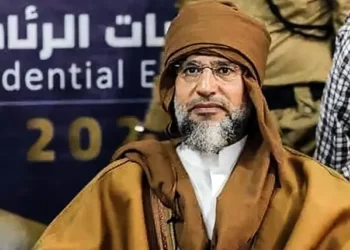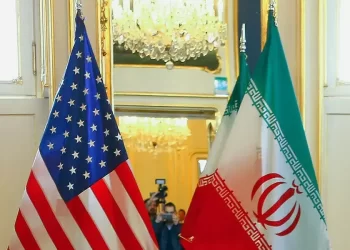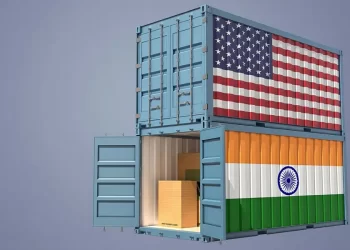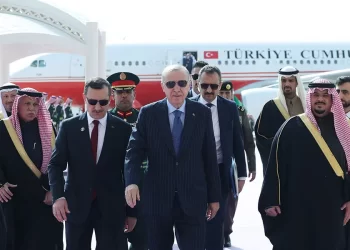WASHINGTON (news agencies) — A Defense Department disagreement over how to bring to justice the accused mastermind of the Sept. 11 attacks and two others has thrown the cases into disarray and surfaced tension between the desire of some victims’ families to see a final legal reckoning and the significant obstacles that may make that impossible.
Defense lawyers and some legal experts blame many of the endless delays on what they call the “original sin” haunting the military prosecutions: the illegal torture that Khalid Sheikh Mohammed and his co-defendants were subjected to in CIA custody. That years-old abuse has snarled the case, leaving lawyers to hash out legal issues two decades later in the now often-forgotten military courtrooms at the U.S. base at Guantanamo Bay, Cuba.
An approved plea bargain sparing Mohammed and two co-defendants from the death penalty appeared to clear those hurdles and push the cases toward conclusion. But after criticism of the deal from some family members and Republican lawmakers, Defense Secretary Lloyd Austin on Aug. 2 revoked the deal signed by the official he had appointed.
Austin said later he believed Americans deserved the opportunity to see the trials through. Pentagon deputy spokeswoman Sabrina Singh said Friday the case “will continue toward trial with pretrial proceedings as it has been.”
Asked for comment, a CIA spokesperson said that the “CIA’s detention and interrogation program ended in 2009.”
The events reflect the disconnect between the wish of many to see the defendants convicted and sentenced in their death penalty cases and the view of many experts that the legal obstacles caused by torture, disputes over evidence and other extraordinary government actions make it unrealistic to expect a conclusion anytime soon.
Relatives of some of the nearly 3,000 people killed in 2001 when al-Qaida recruits flew four hijacked airliners into the World Trade Center, the Pentagon and a Pennsylvania field differed in their hoped-for outcomes for the prosecution. Yet there is shared frustration with its handling so far.
Some said they still want the death penalty imposed even though they know legal complications may make that impossible.
“They’ve been telling us this for years,” said Terry Strada, the leader of the group 9/11 Families United and one of the most vocal family representatives.
Strada said she is still willing to wait years for justice and for “the punishment to fit the crime. And that would be the death penalty.”
Brett Eagleson, whose father, Bruce, was among the World Trade Center victims, said families should not suffer the consequences of government failures.
“At the end of the day, if … they can’t prosecute them, or they can’t convict them, well, the blood’s not on our hands because all the evidence that they’ve obtained was illegal. That’s not our issue,” he said.
“That’s blood on the Bush administration’s hands and that’s blood on the CIA’s hands,” said Eagleson, the president of 9/11 Justice, a victims’ advocacy group. “That has nothing to do with us, and I think the juice is worth the squeeze here.”
Guantanamo defense lawyer J. Wells Dixon points to his own experience on how compelling revelations about the torture can be when cases reach trial. In 2021, seven of eight members of a military panel of officers serving as the jury at the Guantanamo trial of Majid Khan, a former al-Qaida courier whom Dixon represented, surprised the court by requesting clemency for him after hearing his account of mistreatment.
The torture in CIA custody “is a stain on the moral fiber of America; the treatment of Mr. Khan in the hands of US personnel should be a source of shame for the US government,” the officers wrote to the judge.
After more than a decade of pretrial hearings on the admissibility of torture-tinged evidence and other significant legal challenges, the 9/11 case “is further from trial now potentially than it was at the time that it was charged,” Dixon said. “And the reason for that is everything about this case is so tainted by torture.”
Mohammed and two co-defendants, Walid bin Attash and Mustafa al-Hawsawi, had agreed to plea deals that would have required them to answer questions about the attack from victims’ relatives.
A fourth defendant, Ammar al-Baluchi, did not agree to the deal, and is the only one proceeding in pretrial hearings while the others challenge Austin’s decision. The military judge at Guantanamo declared the fifth 9/11 defendant, Ramzi bin al-Shibh, mentally unfit last year, after a military medical panel diagnosed him with post-traumatic stress and psychosis after his torture and solitary confinement in CIA custody.
The abuse that the 9/11 defendants and other detainees underwent in CIA custody began in the stated interest of getting information urgently to stave off additional attacks. Critics question if what the George W. Bush administration termed “enhanced interrogation” techniques ever yielded information that prevented attacks.
They also attribute much of the delays to the administration’s decision to use World War II-era laws to create special military commissions to try foreign defendants.









